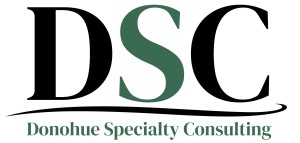Efficiency and effectiveness are keystones to a responsive government. Consultants specializing in government process enhancement and innovation emerge as the architects of change. They wield a blend of expertise and innovation to revolutionize bureaucratic workflows.
In this article, we explore their role through assessment, creativity, collaboration, and actual results.
The Consultant’s Role: Spearheading Efficiency
Consultants come equipped with a distinctive mix of external perspective and analytical skills. These seasoned professionals use meticulous analysis and creative thinking to develop government procedures that are more efficient and user-friendly.
Diagnosing Inefficiencies from Data
At the core of the consultant’s process is a data-driven approach to uncovering inefficiencies. This involves data collection, stakeholder interviews, and detailed workflow mapping. These experts unveil bottlenecks that hamper existing processes’ efficiency.
For example, consultants might untangle the complexities of a convoluted document approval process. They could reveal unnecessary steps that cause delays. Their analysis could pave the way for a simplified digital process, resulting in significant time reduction for approvals.
Collaboration and Stakeholder Engagement: Fostering Consensus
Transformation is a collaborative endeavor between consultants and government personnel. The consultant’s role as a bridge builder becomes evident in this phase. They engage stakeholders in meaningful dialogues, gathering insights, addressing concerns, and ensuring proposed changes resonate across involved parties.
A government agency overhauling its procurement process could find value in consultant-led workshops. These sessions could facilitate discussions with procurement officers, leading to a streamlined process and reduced processing time.
Crafting Comprehensive Enhancement Plans
Armed with insights and a collaborative process, consultants craft comprehensive enhancement plans. These plans encompass step-by-step instructions, defined timelines, resource allocation, and strategic contingencies for potential challenges.
Implementors of Change
Change is most effective when gradual and informed. Consultants acknowledge this truth by advocating for piloting new procedures on a smaller scale before full implementation. This approach allows iterative improvements based on real-world feedback.
Measuring Success and Continuous Refinement
As the optimized procedures are put in place, consultants shift their focus to measuring success using quantifiable metrics. The incorporation of data-driven assessment facilitates ongoing refinements. This ensures adaptability to evolving needs and challenges.
Overcoming Resistance to Change
Change inevitably faces resistance. This is where open dialogue and inclusivity become important. Encourage stakeholders to embrace innovation and work collectively. Consultants can help by conducting training sessions and feedback channels.
For a government without inertia, consultants can become the pioneers of change. Ultimately, they can pave the way for more efficient, responsive, and citizen-centric government operations.
Donohue Specialty Consulting (DSC) provides a complete range of consulting services for government entities. Leverage our expertise, technology, and innovative approaches for sustainable asset management, resource optimization, and value to your citizens. Contact us today.




